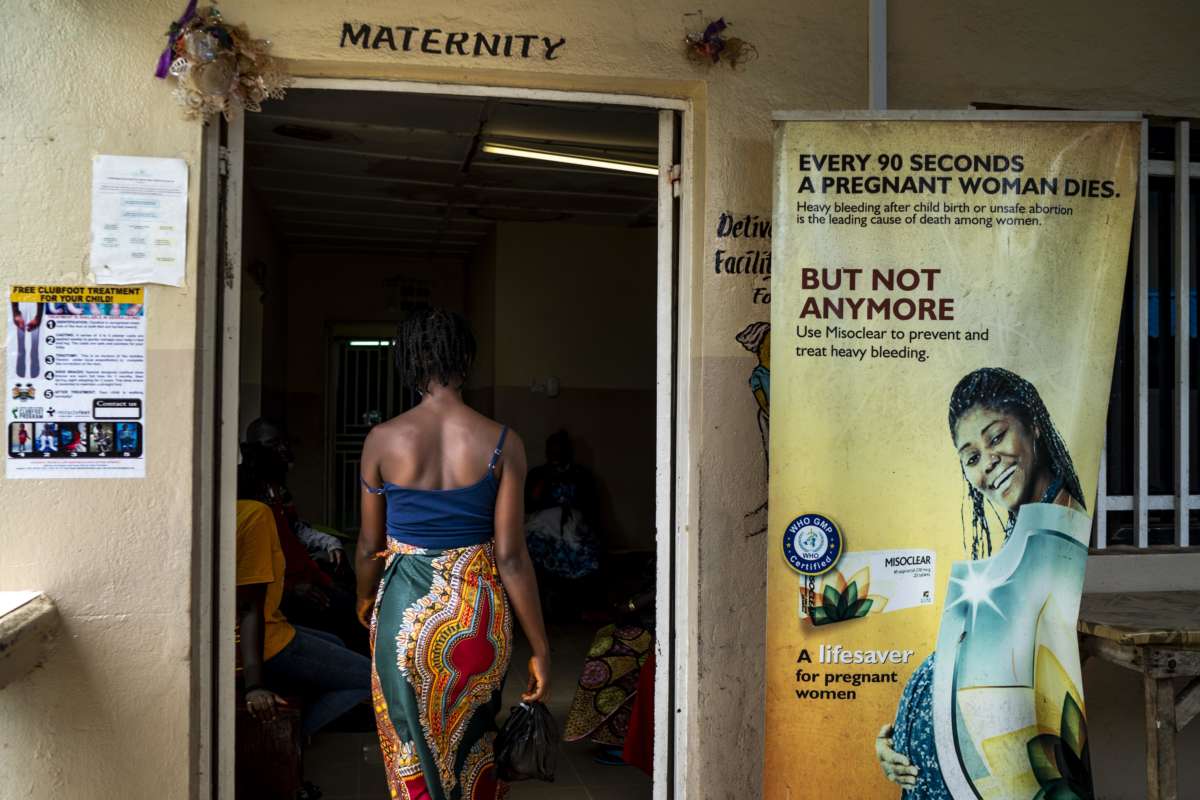As the U.S. Supreme Court and Republican-controlled state legislatures void the constitutional right to abortion in the United States, Sierra Leone on Friday joined the growing list of African nations that have moved to protect the health and rights of pregnant people by decriminalizing the medical procedure.
“At a time in the world when sexual and reproductive health rights for women are either being overturned or threatened, we are proud that Sierra Leone can once again lead with progressive reform,” Julius Maada Bio, president of the West African nation, said during his closing remarks at the 10th Africa Conference on Sexual Health and Rights in the capital city of Freetown.
“My government has unanimously approved a safe motherhood bill that will include a range of critical provisions to ensure the health and dignity of all girls and women of reproductive age in this country,” he added.
The Safe Motherhood and Reproductive Health Act has been approved by Bio’s cabinet and will now go to the nation’s parliament for approval. If passed, the measure will overturn a strict ban on abortions dating back to when the country was a British colony and will help reduce the maternal mortality rate, which is currently the world’s highest.
“Safe and legal abortion saves lives,” the New York-based intersectional feminist group Fòs Feminista tweeted in response to Sierra Leone’s move.
🚨BREAKING: At #ACSHR2022, Pres. of Sierra Leone announced a new Safe Motherhood and Reproductive Health Act, which will decriminalize abortion in the country. A major victory for women and girls, won through the tireless organizing of feminist movements!https://t.co/F8mJaKatd4
— Fòs Feminista (@Fos_Feminista) July 1, 2022
“Unsafe abortion contributes to the high rate of maternal mortality in Sierra Leone,” the group added. “One in 20 women die from causes related to pregnancy or childbirth, making Sierra Leone the third-most dangerous place in the world to become pregnant.”
Fadekemi Akinfaderin, Fòs Feminista’s co-chief officer of global advocacy, said in a statement that “while we see the United States backsliding in protecting their citizens’ sexual and reproductive rights, feminist movements in the Global South, including here in Sierra Leone, are decriminalizing abortion and advancing gender and reproductive justice.”
“I’m hopeful today’s announcement gives activists in the U.S., and especially Black women given the shared history, a restored faith that change is possible and progress can be made,” she added.
While women face ongoing challenges in Sierra Leone — including gender-based violence, enduring inequality, discrimination, and genital mutilation — the country now joins African nations Benin, Cape Verde, Democratic Republic of Congo, Kenya, Mozambique, Tunisia, South Africa, and Zambia in legalizing or decriminalizing abortion.
My country has 99 problems but legal and safe abortions ain’t one.
— Da Gbana Gal (@GbanaGal) July 1, 2022
Fòs Feminista executive director and CEO Giselle Carino said Sierra Leone’s progress “demonstrates the raw strength of global feminist movements.”
“Despite recent setbacks in the United States, feminist movements are stronger than ever and ready to persevere in the global struggle for democracy and reproductive justice,” she asserted.
“It is not lost on us that this victory comes days after the United States Supreme Court overturned Roe v. Wade,” Carino continued. “We recognize the global impact of the United States’ policies and funding in setting a global agenda and shaping policies far beyond its borders — the Global Gag Rule is a clear example of what this looks like.”
“Nevertheless, those determined to advance reproductive justice will never relent,” Carino added, “not in the face of the United States’ faltering leadership, and, as we’ve seen in Sierra Leone, not in the face of interlocking issues of colonialism, racism, and harmful practices against women.”
Join us in defending the truth before it’s too late
The future of independent journalism is uncertain, and the consequences of losing it are too grave to ignore. To ensure Truthout remains safe, strong, and free, we need to raise $24,000 by the end of today. Every dollar raised goes directly toward the costs of producing news you can trust.
Please give what you can — because by supporting us with a tax-deductible donation, you’re not just preserving a source of news, you’re helping to safeguard what’s left of our democracy.
